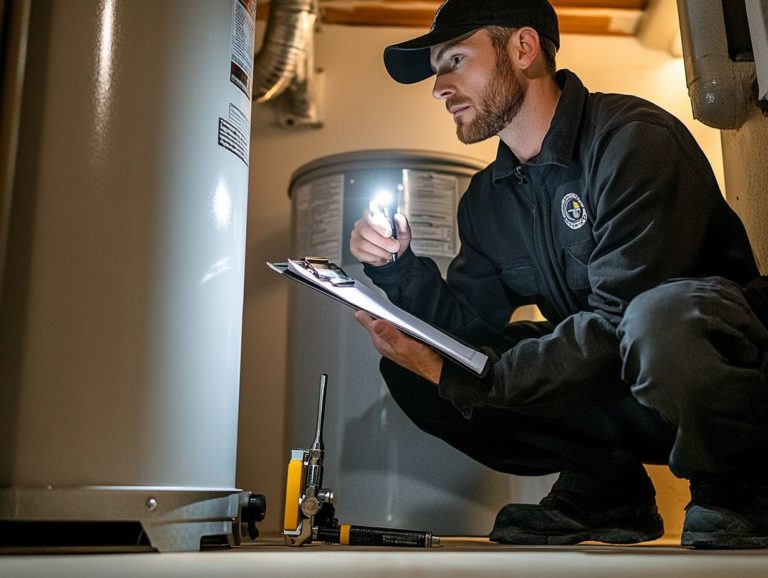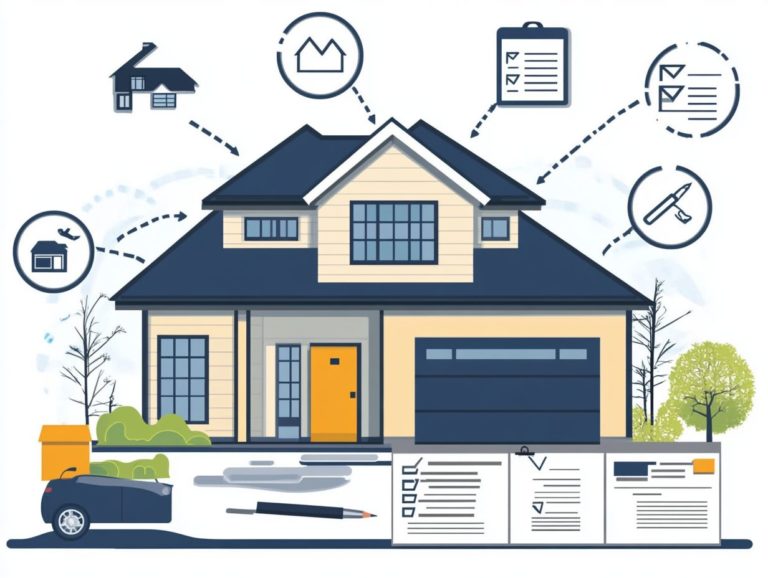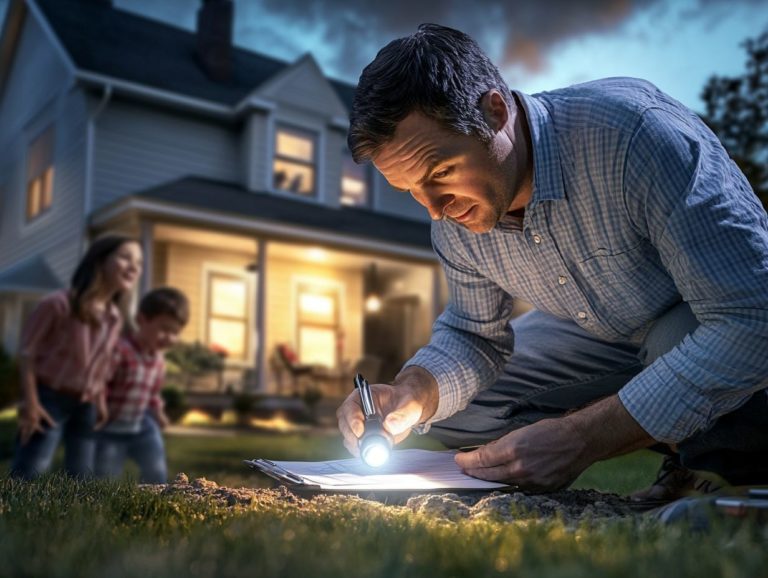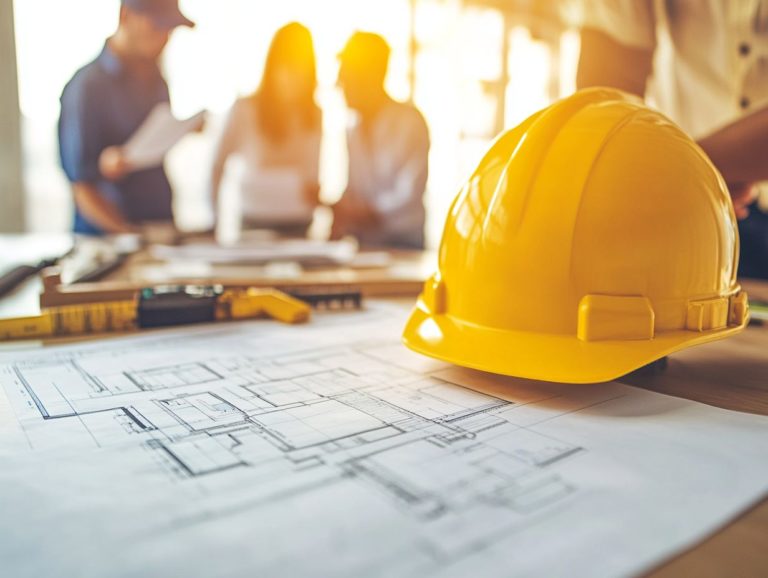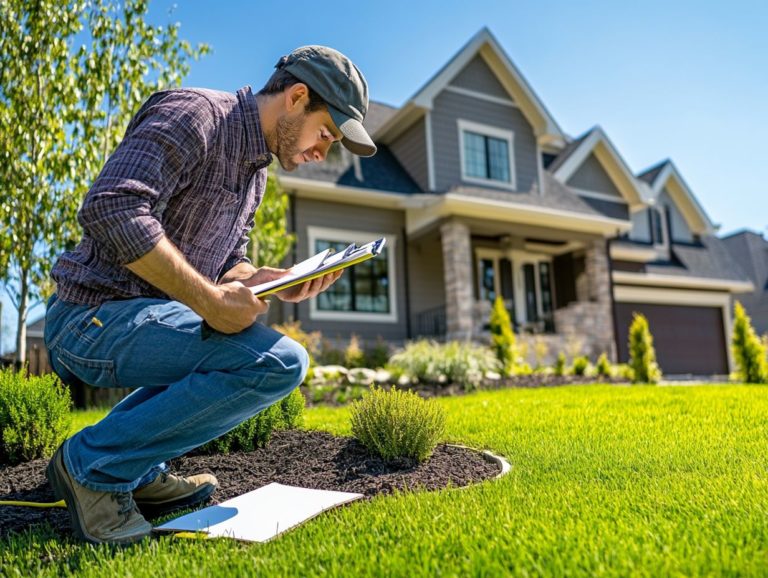Understanding the Home Inspection Process for Buyers
When you re in the market for a home, one of the most vital steps is the home inspection. Think of this process as your safety net, ensuring that the property is in excellent condition and free from concealed issues.
This guide reveals why inspections are crucial for your home-buying success! You ll uncover common problems that inspectors frequently encounter, learn how to select the right inspector, and gather valuable tips for a successful inspection.
Whether you re a first-time buyer or a seasoned homeowner, this information will empower you to make informed decisions and potentially save you money in the long run.
Contents
- Key Takeaways:
- What is a Home Inspection?
- The Importance of Home Inspections for Buyers
- What to Expect During a Home Inspection
- Common Issues Found During Home Inspections
- How to Choose a Home Inspector
- Tips for a Successful Home Inspection
- Frequently Asked Questions
- What is the purpose of a home inspection for buyers?
- Who typically pays for the home inspection?
- What is included in a typical home inspection?
- Can a buyer attend the home inspection?
- What happens if issues are found during the home inspection?
- Do I need to schedule a separate inspection for specialized areas, such as pools or septic tanks?
Key Takeaways:
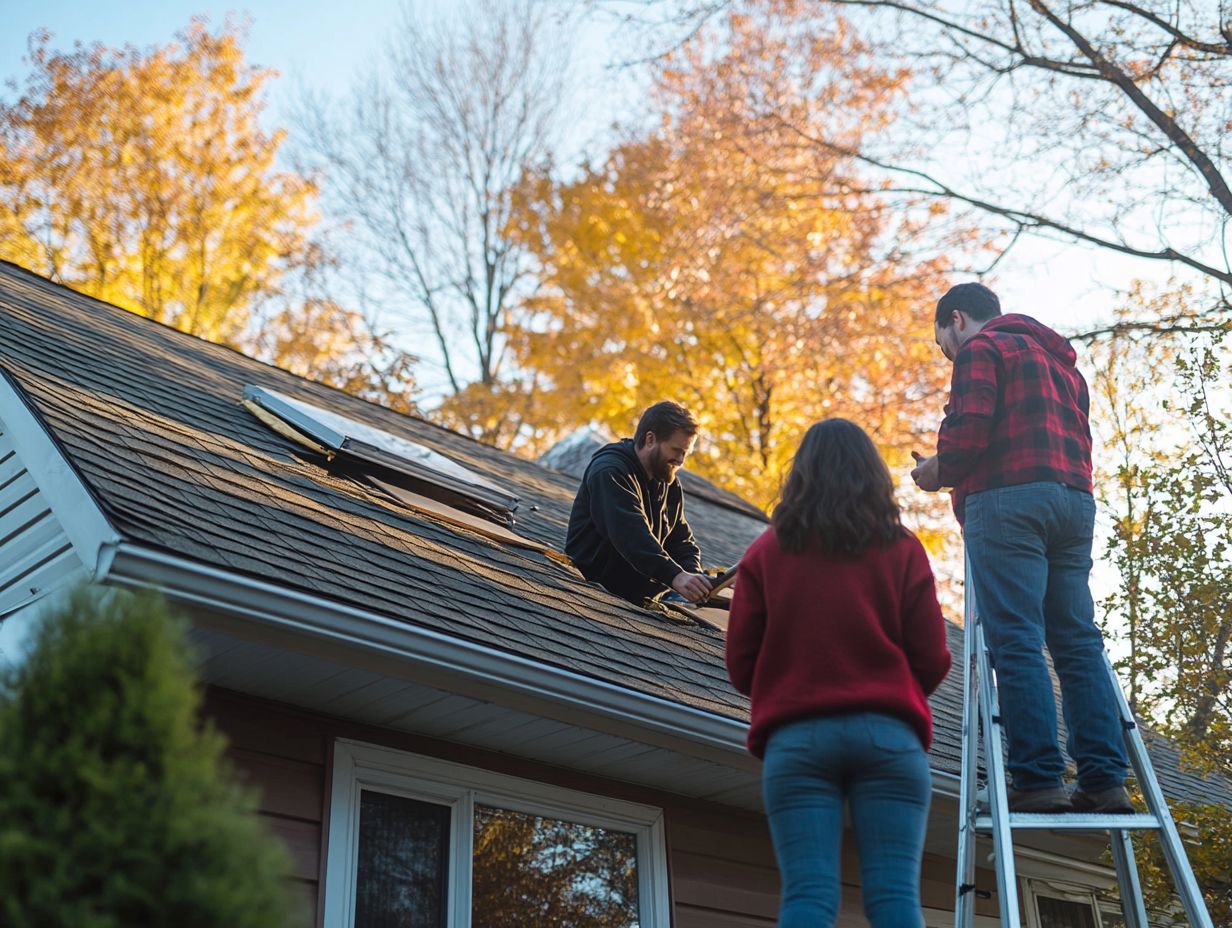
Understanding the home inspection process for buyers is crucial. Home inspections offer many benefits, including saving money and spotting issues before you buy. To ensure a successful home inspection, carefully choose a qualified inspector and prepare for the process.
What is a Home Inspection?
A home inspection is a thorough assessment of a property’s condition, aimed at uncovering significant defects or safety issues that could influence your home buying journey. For more insights, consider understanding the need for home inspections.
This evaluation is usually carried out by a certified inspector who carefully looks at important systems within the home, such as heating, plumbing, and electrical systems.
The results are compiled into a detailed report, providing you with invaluable insights into the property’s state before you make that final purchase decision.
Definition and Purpose
A home inspection is designed to inform you about potential risks and the overall quality of your prospective home. Understanding the home inspection report is crucial for you as a future homeowner, as it reveals hidden issues that might escape notice during a casual walkthrough.
The objective is to give you the power to make informed decisions about the strength and stability of the home, electrical systems, plumbing, and more.
By evaluating these key components, you gain valuable insights that can influence your negotiation strategies and future maintenance plans. Ultimately, a comprehensive property evaluation is essential for ensuring a sound investment and a secure living environment.
The Importance of Home Inspections for Buyers
Home inspections are essential in safeguarding you from potential pitfalls. They allow you to make well-informed decisions during property transactions.
By uncovering issues early, whether structural concerns or safety hazards, you gain the upper hand in negotiating repairs or price adjustments with the seller.
This proactive approach mitigates financial risk and helps you avoid unexpected costs down the line.
Benefits and Potential Savings
The advantages of a home inspection extend beyond identifying defects; they present you with potential savings by uncovering necessary repairs before you commit to a purchase.
Armed with this important information, you can confidently negotiate repair costs with the seller, possibly leading to a more favorable final purchase price.
Understanding the seller’s disclosure becomes clearer when it s supported by an inspection, highlighting any discrepancies that might surprise you with unexpected expenses after the sale.
This proactive approach empowers you to make informed decisions and can result in significant financial savings over time, ensuring a more secure and satisfying home-buying experience.
What to Expect During a Home Inspection

During a home inspection, anticipate a thorough examination carried out by seasoned inspectors who adhere to established protocols.
This process includes a comprehensive assessment of the property’s exterior features, interior systems, and overall structure, guided by a detailed checklist to ensure that every critical area receives attention.
While the duration of the inspection may vary, it typically spans a few hours, influenced by the size and complexity of the property.
Don’t wait get your home inspected today to ensure you’re making a sound investment!
Step-by-Step Process
The step-by-step process of a home inspection typically starts with a thorough visual examination of the property’s exterior, including the roof, foundation, and landscaping. Once that s done, the inspector focuses on the interior systems.
During this initial phase, they look for signs of wear and tear, structural issues, and any potential safety hazards. Make sure to take note of the condition of roofing materials, gutters, and downspouts, as these elements are critical for keeping your home weatherproof.
Once the exterior is assessed, the inspector ventures inside to evaluate plumbing, electrical systems, and heating, ventilation, and air conditioning (HVAC) units. Pay close attention to any reported deficiencies and potential repairs needed, as these factors can significantly influence your purchasing decisions.
Analyzing insulation and ventilation in the attic is also vital. If the conditions are improper, it could lead to energy inefficiency and ultimately higher utility bills. Keeping these considerations in mind empowers you to make well-informed choices in your home-buying journey.
Common Issues Found During Home Inspections
Home inspections frequently uncover common issues that can profoundly affect a property’s value and safety, including significant defects and structural concerns.
As a buyer, it s essential to be vigilant about potential problems like outdated electrical systems, plumbing leaks, or roof damage. These issues can lead to expensive repairs down the line and impact the overall livability of your new home.
Identifying and Addressing Problems
Identifying and addressing issues during a home inspection is crucial for ensuring the safety and integrity of your property. This process requires a detailed evaluation of structural concerns, electrical systems, plumbing conditions, and general maintenance issues.
Spotting these problems early empowers you to make informed decisions that can significantly impact your negotiations with the seller. For example, if the inspection uncovers outdated wiring or plumbing leaks, you have the opportunity to request repairs as part of the agreement or negotiate a price reduction to cover those repair costs.
Ultimately, taking this proactive approach can lead to a more satisfying transaction and protect your investment for years to come.
How to Choose a Home Inspector
Selecting the right home inspector is crucial for securing a comprehensive evaluation of the property. As a buyer, you should consider several key factors in your decision-making process, including understanding the home inspection timeline.
- Seek out a certified inspector who has experience in the local real estate market and a track record of positive reviews from previous clients.
- Prepare thoughtful inspection questions to assess their expertise and understanding of inspection requirements, ensuring you make an informed choice.
Factors to Consider and Questions to Ask
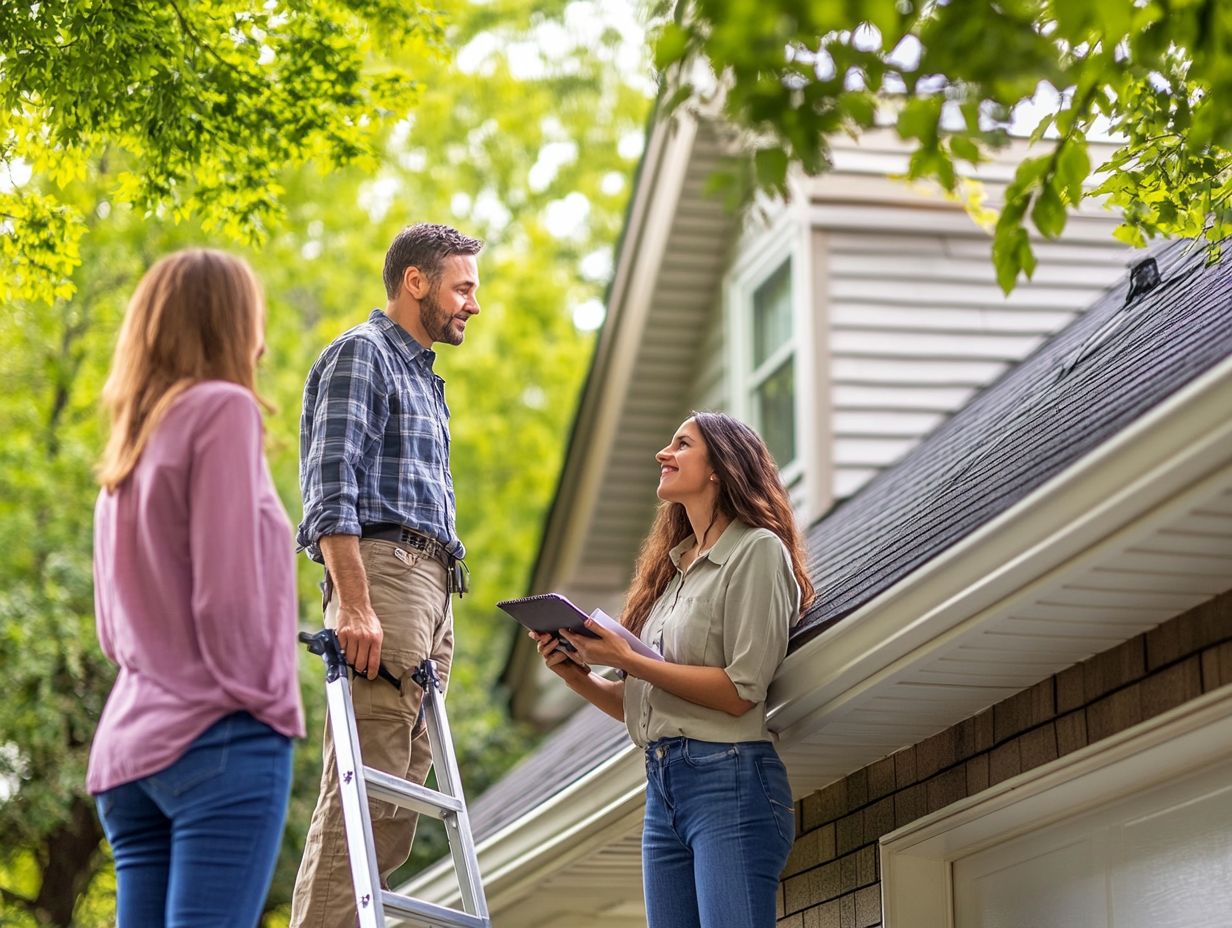
When selecting a home inspector, consider several key factors, including certifications, experience, and reviews from past clients.
Inquire about their specific qualifications, like whether they are licensed and insured. It s wise to ask how many years they ve been in the field and the total number of inspections they’ve completed, as these details can reveal their level of expertise.
Requesting references can offer valuable insights into their work ethic and thoroughness.
Understanding the types of inspections they conduct whether for general home maintenance or specialized evaluations can ensure that the inspector aligns with your specific needs.
Effective communication is also paramount, so discuss how the inspector plans to report findings and how they will handle any follow-up questions you may have.
Tips for a Successful Home Inspection
To ensure a successful home inspection, be thoroughly prepared and actively engage in the entire process. Understanding the home inspection process for sellers can help you know your rights as a buyer, ensure you are present during the inspection, and encourage you to ask insightful questions about the property’s condition and maintenance requirements.
Following up with the inspector after receiving the inspection report is also crucial; it allows you to gain clarity on any potential concerns that may arise.
Preparing for the Inspection and Following Up
Preparing for a home inspection means understanding the process of home inspections and being actively involved. Following up afterward is vital for addressing any identified issues.
It s essential for you to get to know common inspection practices, such as evaluating major systems like plumbing and electrical. These checks can reveal potential costs that may arise in the future.
Before the inspection, discuss any specific concerns with the inspector. This can lead to a more personalized evaluation tailored to your needs. You should also be aware of your rights to request repairs or credits based on the findings. Additionally, understand your responsibilities regarding the property’s condition.
Once you have access to the inspection report, take the time to review it thoroughly. This will help you make informed decisions and empower you to negotiate effectively, ensuring that your investment is well protected. Dive into your inspection report! It s your key to protecting your investment!
Frequently Asked Questions
What is the purpose of a home inspection for buyers?
The purpose of a home inspection for buyers is to provide a thorough and unbiased evaluation of the condition of a property before finalizing a purchase. Understanding the home inspection process can help identify any major issues or safety hazards that may affect the decision to buy the home.
Who typically pays for the home inspection?
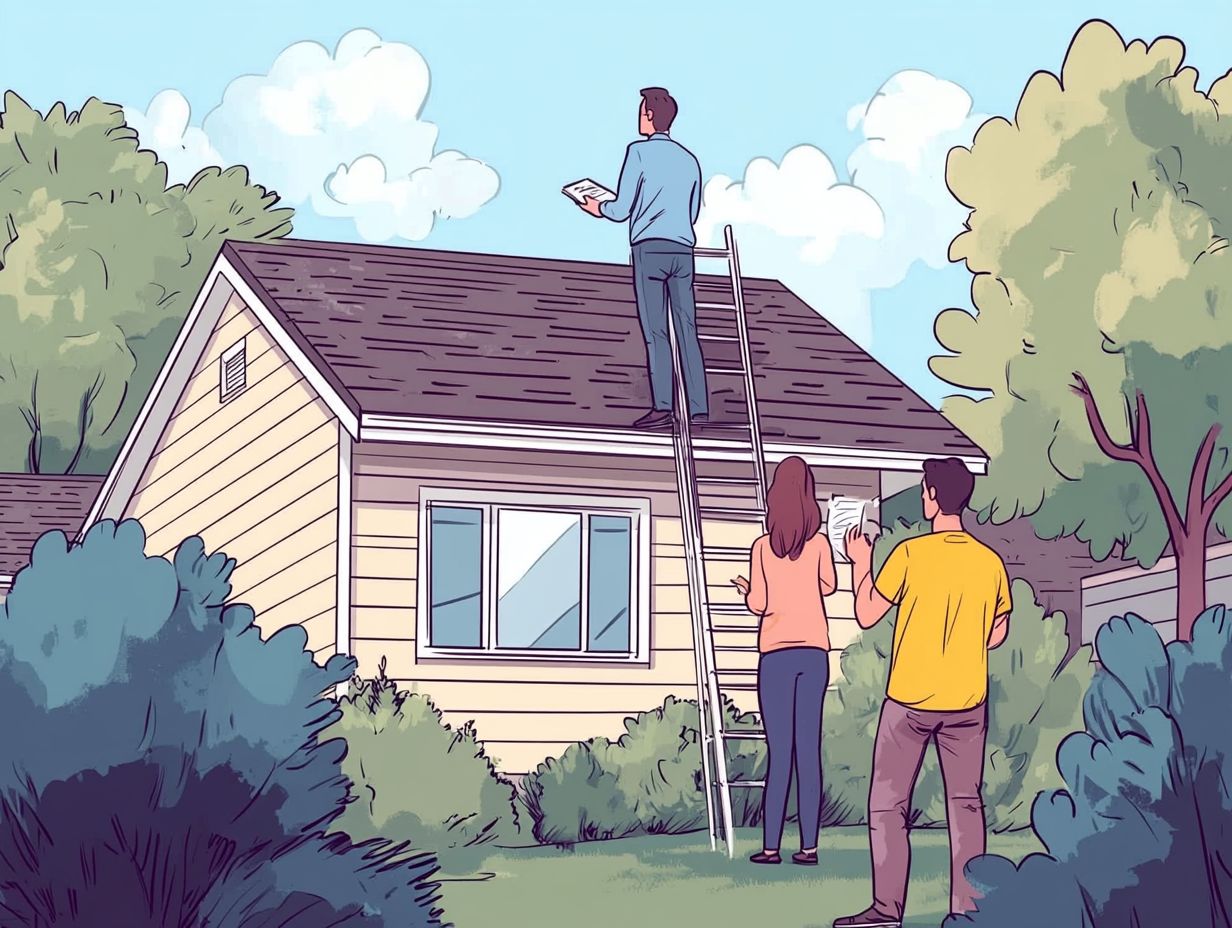
In most cases, the home buyer is responsible for paying for the home inspection. However, it is negotiable and can be included in the closing costs or paid for by the seller or real estate agent.
What is included in a typical home inspection?
A standard home inspection will cover the major systems and components of a home, including the roof, foundation, plumbing, electrical, HVAC (Heating, Ventilation, and Air Conditioning), and appliances. It may also include a check for pests and mold.
Can a buyer attend the home inspection?
Yes, buyers are encouraged to attend the home inspection. This allows them to ask questions and get a better understanding of the condition of the home. It also gives them the opportunity to see any issues firsthand.
What happens if issues are found during the home inspection?
If issues are found during the home inspection, the buyer can negotiate with the seller to have them fixed before closing or ask for a reduction in the purchase price to cover the cost of repairs. In some cases, the buyer may choose to walk away from the deal if the issues are significant.
Do I need to schedule a separate inspection for specialized areas, such as pools or septic tanks?
It is recommended to schedule separate inspections for specialized areas, such as pools or septic tanks. These areas may require a specialist’s expertise, and it is important to have a thorough evaluation before making a purchase decision.
Summary: A home inspection is crucial for buyers to gather insights about the property’s condition, understand their rights and responsibilities, and prepare for any negotiations. Always consider specialized inspections for unique components and ensure you engage actively in the home inspection process.

